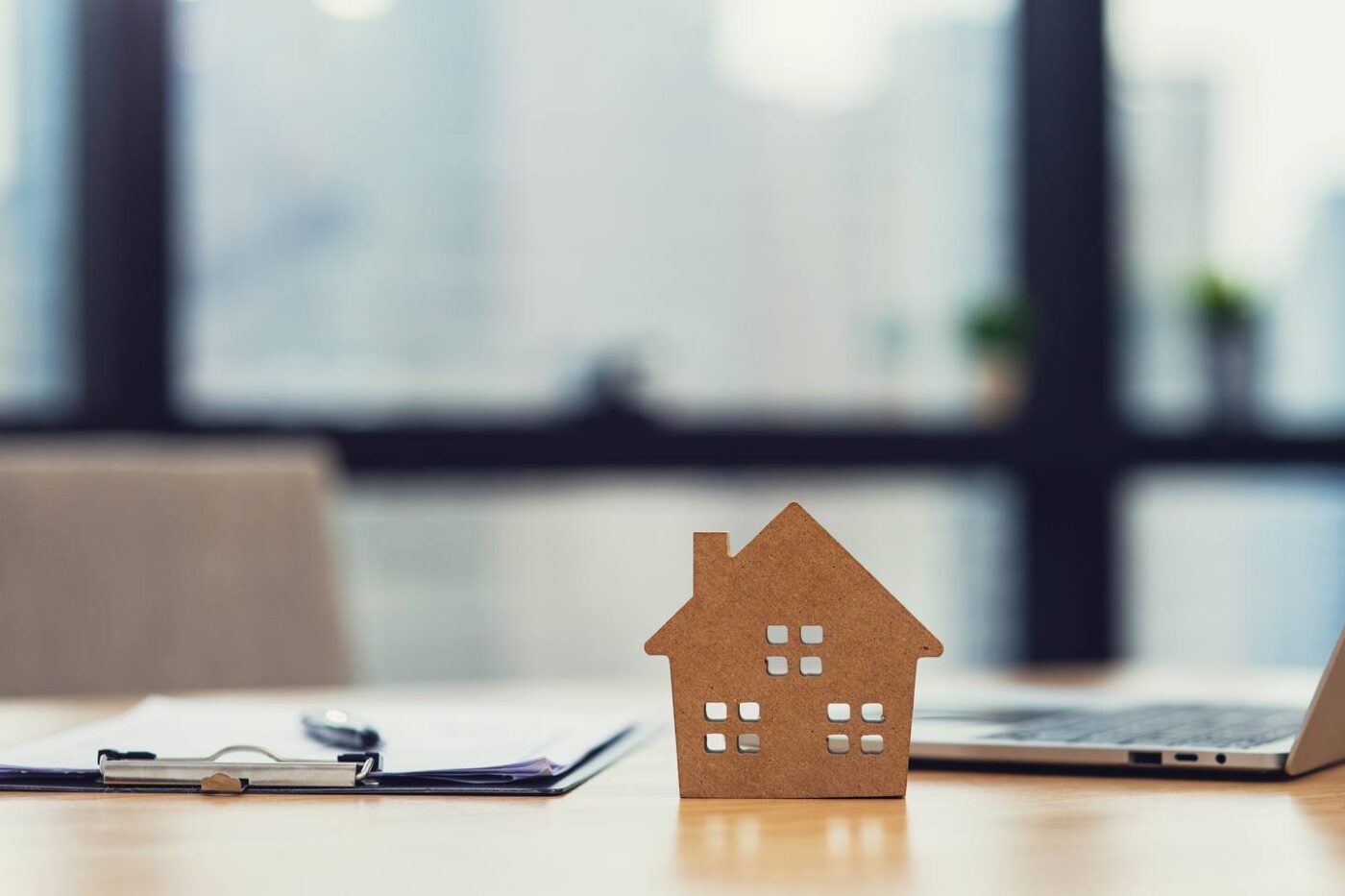
Whether you are going on a long holiday or renovating your house, there may be innumerable reasons why one could leave a property unoccupied. It is needless to mention that the safety and security of an unattended property is a matter of huge concern for the property owner.
Besides, an empty house may be an easy target for vandals and thieves, and the possibility of your home getting damaged from an accident or natural calamity can also not be ruled out. This is why many insurance providers offer home insurance for empty properties.
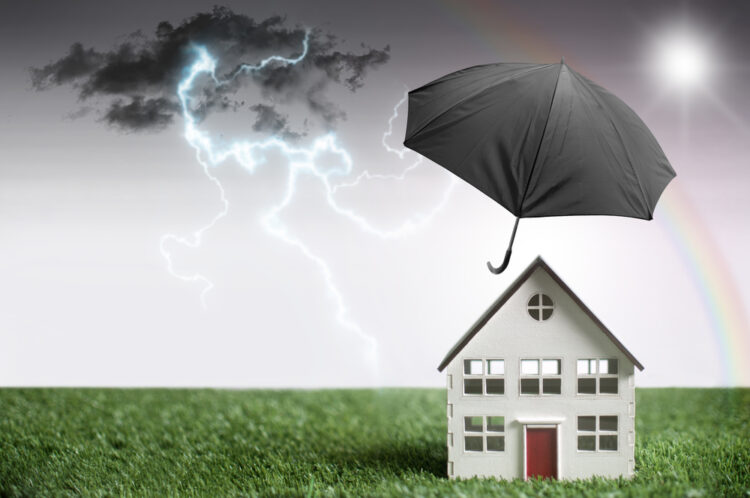
Property insurance can save you from all the worries and troubles of leaving your house unattended or vacant. While insurance cannot protect your home against damages, it can surely provide you a cover against monetary losses in case of a mishap with your house. But there’s a hitch; empty home insurance isn’t the same as property insurance.
That’s why you have to wisely choose an insurance policy that is best suited for your needs. Or, you can cut yourself some slack and read this article to know what the experts at Surex think about empty home insurance and its functionality.
What is Empty Home Insurance?
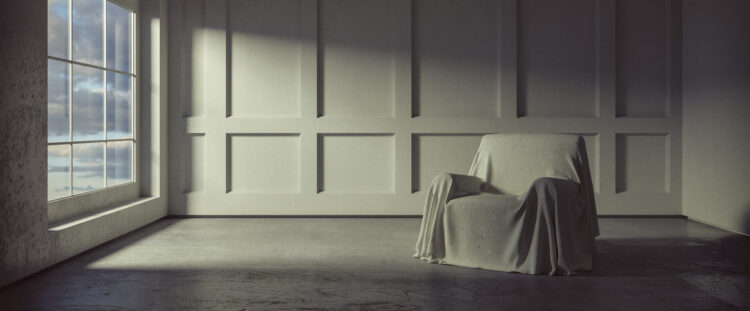
Undoubtedly, an empty house has a higher risk of getting vandalized or damaged than an occupied one. Furthermore, the response time against contingencies in an unoccupied house is significantly slower than in an occupied house.
As such, the insurance companies do not provide cover for an unoccupied home in a homeowner’s insurance policy. Instead, insurance companies have different policies and provisions to insure unoccupied houses, known as empty house insurance. These insurance policies are precisely drafted to address the necessities of insuring an uninhabited house.
Unoccupied vs. Vacant Homes: Learn the Difference
It’s crucial to know which home insurance coverage matches your needs since there’s a very thin line that differentiates an unoccupied house from a vacant dwelling. But how can you tell them apart? Here’s how:
A vacant home is one that has been left unattended for more than 30 days and stripped off of the furniture, appliances, and other utilities. However, the definition of a vacant home varies from insurer to insurer. But the majority of them stick to the 30-day rule stated above.
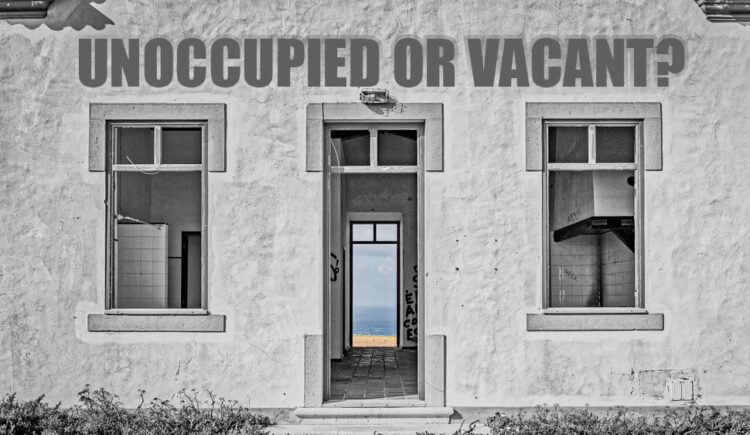
It is pertinent to mention that if you leave your property unattended for more than 30 days, it will automatically bring your home to the “vacant” category. The insurer shall cancel all the existing coverage of your homeowner’s insurance. But there is a way to avoid all this inconvenience. Contact your insurer and tell them you will not be home for more than 30 days!
Meanwhile, an unoccupied home is one that is temporarily unattended. An unoccupied home has all its furniture, utilities, and appliances in place and running condition. Thus, you can inhibit an unoccupied home at any time. In contrast, you can not do so with a vacant house.
What Does Empty Home Insurance Cover?
Although different empty home insurance policies vary with each insurer, most of the risks they cover more or less remain the same. Some of them include-
- A fire or explosion
- Vandalism or destruction of property
- Water or sprinkler leakage
- Damage due to hailstorms, windstorms, lightning, etc.
How Does Empty Home Insurance Work?
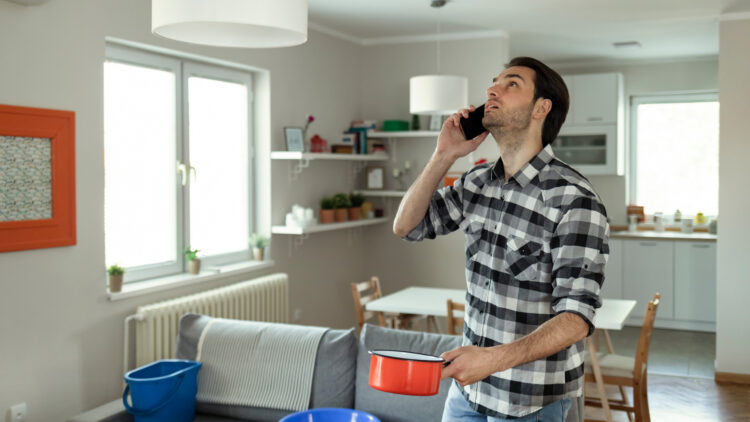
You may have a perfect home insurance policy that provides top-notch cover for everything, including tenancy. But your home insurance policy won’t provide coverage against any damage whatsoever if you leave the property unattended for more than 30 days! Empty house insurance may be your sigh of relief in such instances since it offers complete protection against various perils listed in the policy document.
Empty home insurance is slightly different from ordinary homeowner’s insurance and is often sold as an endorsement or a separate policy. Many homeowners’ policies have empty house insurance as an add-on benefit, for which you have to pay extra.
At the same time, various separate empty house insurance policies require you to pay solely to ensure an unoccupied house. But how can you tell if you need a vacant house insurance policy? Let’s find out.
Home Insurance for Empty Property or Dwelling: Who Needs It?
An empty home insurance policy is ideal for anyone who owns a property that may potentially be left uninhabited for more than 30 days. If your property belongs to any one of the following, you should consider purchasing an empty house insurance policy.
Renovation
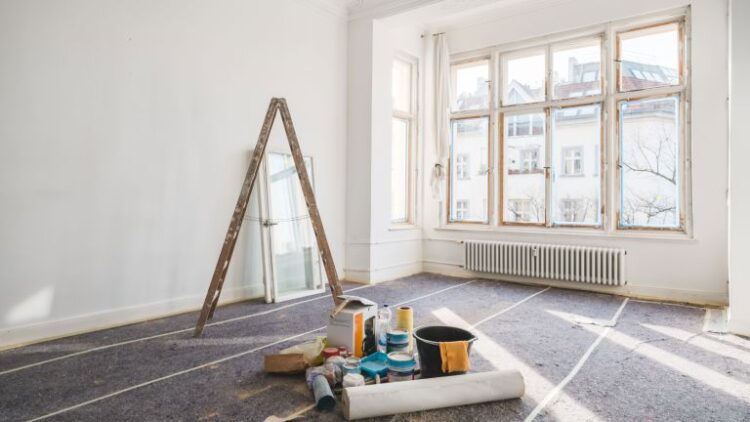
It will help if you purchase an empty home insurance policy if you are planning a home renovation that may take more than 30 days to complete. However, you might not need one if you are inhibiting the property during renovation.
Tenancy
It is always wise to purchase a home insurance policy that facilitates empty home insurance as an add-on feature, especially if you own a property that the tenants recurrently inhibit. Such a property has a higher risk of being left unoccupied for many days.
A standard home insurance policy will not cover your property against any damage or theft if it is left unoccupied for more than 30 days. But, if you purchase a policy that offers empty home insurance as an add-on feature, you can keep your dwelling insured even when left unoccupied for an extended period.
Selling
If you have moved to a new location and are still looking for a buyer, you should get your property covered under an empty home insurance policy.
Vacation Homes
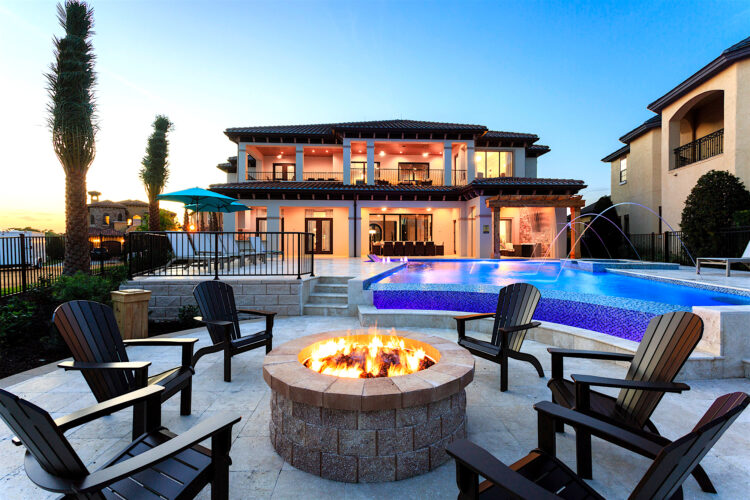
If you own a holiday house that you occasionally visit for a few days in a year, it will be wise to get it covered under an empty home insurance policy.
Apart from the above, you can also purchase an empty house insurance policy if you have to be hospitalized for a period that exceeds 30 days.
These various specific situations may cause your dwelling to remain unattended for an extended duration. But, such situations demand appropriate measures to safeguard and ensure your property against any loss.
Endnote
If you have home insurance empty house coverage is a great way to keep your property and belongings safe. However, if this isn’t an option, the wisest way to keep your dwelling safe is never to leave it unattended. You may ask your friends or relatives to stay at your property and look after it while you are away.
But, in case you can’t have someone to take care of your property in your absence, make sure that you purchase an empty home insurance policy from a reliable insurer that provides more comprehensive coverage and facilitates quick claim settlements.











